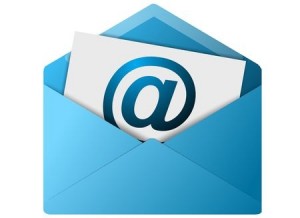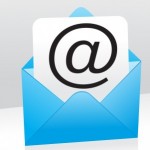
Widgetized Section
Go to Admin » Appearance » Widgets » and move Gabfire Widget: Social into that MastheadOverlay zone
After The Job Interview
How to follow up after a job interview
 Finding a new job is a process. You spend a significant amount of time updating and individualizing your resume hoping to get an interview. Once you’re invited in you practice your answers to common interview questions with anyone who will listen – a close friend, a partner, or even your pet.
Finding a new job is a process. You spend a significant amount of time updating and individualizing your resume hoping to get an interview. Once you’re invited in you practice your answers to common interview questions with anyone who will listen – a close friend, a partner, or even your pet.
It may seem like once you finish the interview you have to wait for the employer to get back to you. But in today’s dynamic job market it’s essential to follow up creatively and professionally after the job interview.
When and How to Follow Up
The follow-up process should start before the interview even takes place. Getting the names of people you’ll be meeting before the interview is a good way to prepare.
If you’re planning to send a handwritten thank you note after the job interview, Robin Reshwan, founder of Collegial Services, recommends buying the card in advance, and having it addressed and stamped prior to the interview.
“This leaves you the simple task of writing the note and slipping it into the mail immediately after the interview,” Reshwan says. Many candidates don’t even bother to follow up after a job interview, so whoever you met will be impressed with your punctuality and interest.
If you’re sending an email thank you make sure you send it within 24-hours. If it’s feasible, Reshwan recommends sending it in the early morning, preferably before nine so your email is one of the first emails the employer sees. Ask each person you interview with for a business card so you’ll have his or her contact information.
In addition to writing a thank you card or email, it’s important to be proactive during the interview. Don’t shy away from asking the interviewer person what the next steps are and when you should expect to hear back from him or her Even if you have a stellar memory, take notes throughout your interview, especially areas where you connected with your interviewer.
Jenn Suarez, executive coach, notes that being proactive from the start can go a long way. “Communicate that you’ll touch base in X amount of time. If the date that they said they would get back to you comes and goes, drop them a note reiterating how wonderful it was to meet them, how interesting the position sounds, and how you feel it would be a great match for both of you,” she explains.
If you don’t hear back after a week or so sending a follow up note to see where the process stands ensures you’re covering your bases. Keep in mind that it’s never too late for your note to make a difference in the hiring process.
Interviewers appreciate receiving a note that’s well thought out and that shows your understanding of the company, the role, and the people you met. Even if the role you interviewed for isn’t available, your note has the potential to leave a lasting impression which could mean getting called for another role if and when it opens up. So think of the follow-up note as an opportunity to establish a long-term connection.
What to Say in Your Note
Your follow-up note should make them remember you and sell them on you as the winning candidate.
Make sure your follow-up note includes details from your interview. This is where your notes from the interview come in handy. Whether you decide to recall a personal story that they shared with you, or reference something else, your note should remind them that you paid attention and that you remember the conversation. Also be sure to affirm your interest in the company, note your skills as a candidate, and how you can help them thrive.
Don’t forget to thank them for their time and to check that your note is error free.
An email or note with a misspelled word or wrong tense can be very off-putting. It can make you appear rushed and unprofessional.
Creative Ways to Follow Up
Standing out is a great way to get a job offer, but Suarez advises that you read into the situation before getting too creative. “I love creativity. However, in an interviewing context, you have to be careful about how far out-of-the-box you go,” she says.
If you want to stand out from other candidates here are a few suggestions:
- In your thank you include an article or blog posting related to something that you discussed during the interview. You might say something like: “I saw this story about your company in X magazine, and it’s great to see such a clear strategy for the future.” Some good sources to peruse are The Wall Street Journal, The New York Times, Fast Company, Bloomberg, and/or specific Industry Publications
- Help the interviewer make a connection to someone regarding a topic that came up in the interview. For example, if you and your interviewer talked about recruiting software, and you know someone that specializes in that area, connect him or her via email.
- Send a handwritten note if you know it won’t be buried in a stack of mail.
- If you haven’t already, connect on LinkedIn. Ask if it’s OK while you’re at the interview.
Another way to stand out is to follow up with a phone call. Sometimes, hearing enthusiasm over the phone has more of an impact than an email. If they don’t answer, Jenn DeWall, life coach, recommends leaving a short upbeat message that includes both your phone and email contact information. Have your message planned in advance so you don’t ramble.
Know When to Give Up
Sometimes, the hiring process stalls, or it gets tabled due to budgetary constraints. Companies and employers move on to other things, and they don’t always have the time to follow up with candidates and let them know. It’s also possible that your interviewer found the perfect person and focused all of their energies on them.
Michele Woodward, executive coach and career strategist, has a rule of three when it comes to following up. First, contact the employer after the interview. If you haven’t received a response within a week, make contact again. “Keep this one simple, and express your interest in the position,” she says. Give your interviewers another week to get back to you and write them once more. “Be engaging and reaffirm that you remain interested in the position,” she recommends.
If your inbox is still empty after your third attempt, let it go. Try to remain objective and send a final note saying it was great to meet them and that you would love to keep in touch. Leaving the doors open will only benefit you in the long run.







You must be logged in to post a comment Login